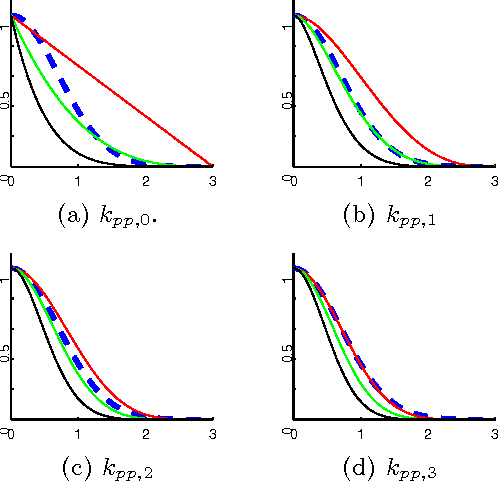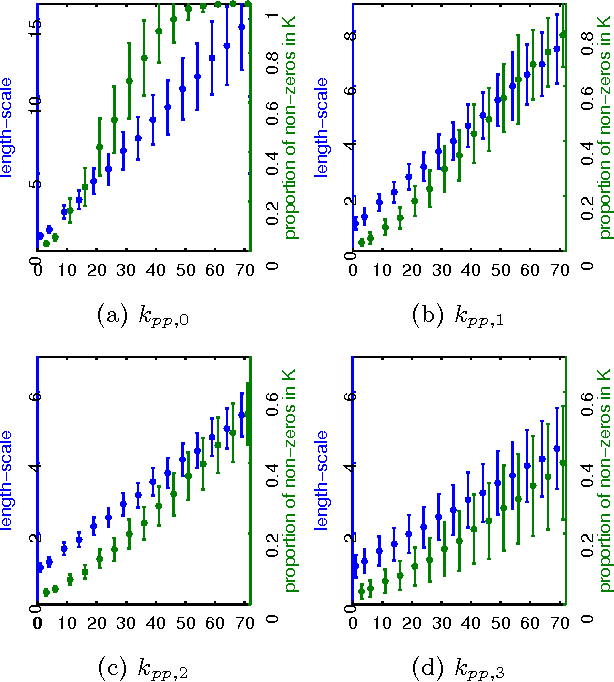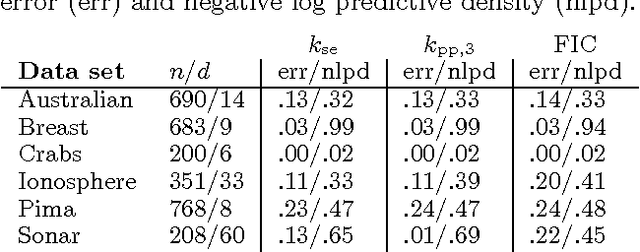Speeding up the binary Gaussian process classification
Paper and Code
Mar 15, 2012



Gaussian processes (GP) are attractive building blocks for many probabilistic models. Their drawbacks, however, are the rapidly increasing inference time and memory requirement alongside increasing data. The problem can be alleviated with compactly supported (CS) covariance functions, which produce sparse covariance matrices that are fast in computations and cheap to store. CS functions have previously been used in GP regression but here the focus is in a classification problem. This brings new challenges since the posterior inference has to be done approximately. We utilize the expectation propagation algorithm and show how its standard implementation has to be modified to obtain computational benefits from the sparse covariance matrices. We study four CS covariance functions and show that they may lead to substantial speed up in the inference time compared to globally supported functions.
 Add to Chrome
Add to Chrome Add to Firefox
Add to Firefox Add to Edge
Add to Edge